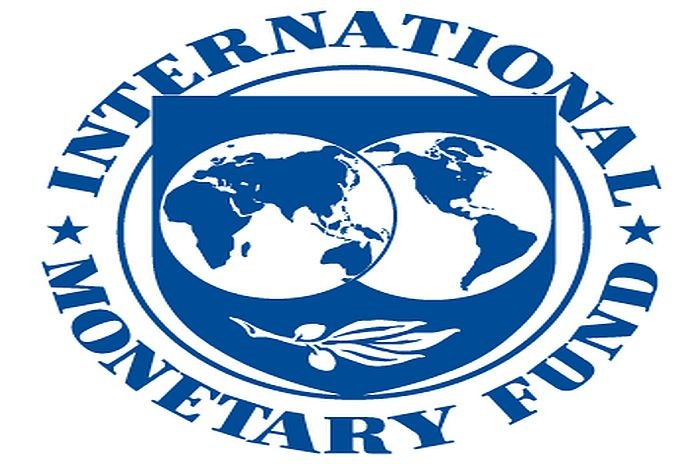- The IMF Executive Board approved today Jamaica’s request for SDR 727.51 million (about US$968 million) under Precautionary and liquidity Line (PLL) arrangement.
- The IMF Executive Board also approved SDR 574.35 million (about US$764 million) under the newly created Resilience and Sustainability Facility (RSF).
- The 24-month program will provide insurance against risks from higher commodity prices, a global slowdown, tighter-than-envisaged global financial conditions, new COVID outbreaks and in strengthening physical and fiscal resilience to climate change.
WASHINGTON, USA – The executive board of the International Monetary Fund (IMF) approved a 24-month arrangement under the Precautionary and Liquidity Line (PLL) with access of US$968 million (190 percent of quota), to provide insurance against risks from higher commodity prices, a global slowdown, tighter-than-envisaged global financial conditions, and new COVID outbreaks. The executive board also approved an arrangement under the Resilience and Sustainability Facility (RSF) for US$764 million (150 percent of quota) to strengthen physical and fiscal resilience to climate change, advance decarbonization of the economy, and manage transition risks. The RSF is expected to catalyze funding for climate priorities from other official lenders and the private sector.
Over the past few years, Jamaica has been buffeted by a difficult global environment from COVID, the war in Ukraine, and the ongoing tightening of global financial conditions. Supported by sound policy frameworks and policies prioritizing macroeconomic stability, the economy is now recovering strongly.
As COVID waned, tourism has rebounded to pre-crisis levels, and 2022 real GDP growth is expected to be around 4 percent. Public debt is on a downward trajectory and the overall fiscal balance is in line with the medium-term fiscal framework. Pushed by global factors – in particular, the impact of the war in Ukraine on commodity prices inflation has risen above the Bank of Jamaica’s target band but is declining since mid-2022. High commodity prices have resulted in an increase in the current account deficit, but international reserves remain at healthy levels. The financial system is well-capitalized and liquid.
The outlook points to a continued recovery and inflation falling back within the Bank of Jamaica’s target range by end-2023. The economy, though, is facing significant external risks. The war in Ukraine may push commodity prices higher, a stronger-than-envisaged tightening of global financial conditions may curb capital flows and reduce remittances, and new COVID variants could disrupt tourism and trade. The authorities’ response to recent shocks has been well-designed. The fiscal policy response to COVID was nimble, supporting the economy in 2020 but then quickly resuming a downward path for the debt.
Similarly, the response to the surge in fuel and food prices allowed for pass-through while providing targeted support within the existing fiscal envelope. The Bank of Jamaica has followed a data-dependent tightening of monetary policy to secure convergence to the inflation target. These policies have struck the right balance in responding to shocks, protecting the vulnerable, countering inflationary pressures, and further securing debt sustainability.

Following the executive board’s discussion, Bo Li, deputy managing director and acting chair of the board, issued the following statement:
“Jamaica strong track record of building institutions and prioritizing macroeconomic stability has aided the post-pandemic recovery. The economy continues its strong recovery from COVID, and inflation is expected to converge to the BOJ target range by end-2023. International reserves remain at adequate levels and the financial sector remains well-capitalized and liquid. The post-pandemic increase in the primary surplus and the ongoing monetary tightening strike the right balance in response to the external shocks, reducing inflation and securing debt sustainability.
“The authorities continue to enhance policy frameworks. The Fiscal Commission will strengthen the fiscal responsibility framework, public sector reforms will create a standardized and equitable pay structure for government employees that rewards performance, and efforts to strengthen tax and customs administration will support the revenue envelope. Amendments to the BOJ Act have strengthened the central bank’s autonomy and governance structures. Progress is also being made in the adoption of the Basel III framework and the enhancement of oversight of the financial system.
“To insure against risks from higher commodity prices, a global slowdown, tighter-than-envisaged global financial conditions, and new COVID outbreaks the authorities have requested an arrangement under the Precautionary and Liquidity Line (PLL) along with a Resilience and Sustainability Facility (RSF) to strengthen physical and fiscal resilience to climate change.
“The PLL will support the authorities’ plans to improve financial supervision, the AML/CFT framework, and data reporting.
“Reforms in the RSF, built on Jamaica’s home-grown climate policy, were prepared in close collaboration with the World Bank and other international partners. They create incentives to switch to renewables, reduce energy consumption, develop green financial instruments, and require proper management of climate risks in the financial sector. Reforms are expected to catalyze private and official financing for climate-related investment.”
IMF Communications Department





